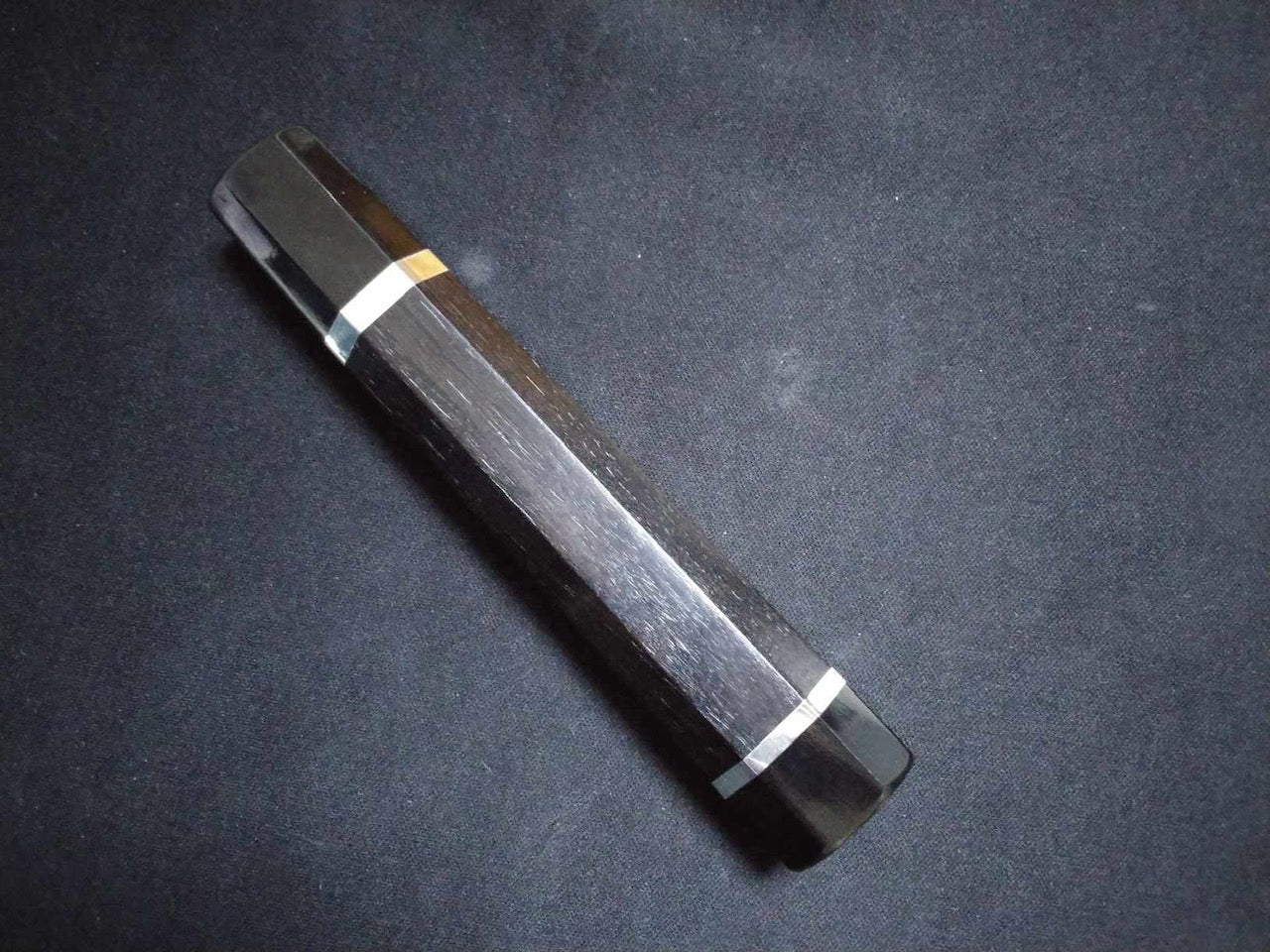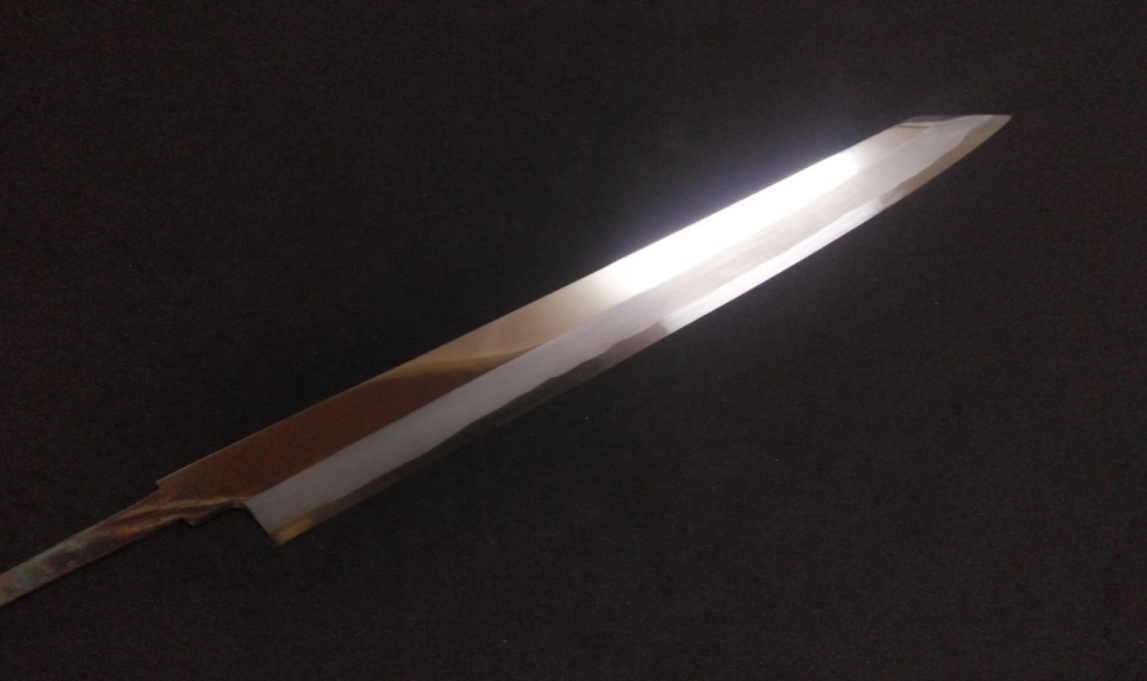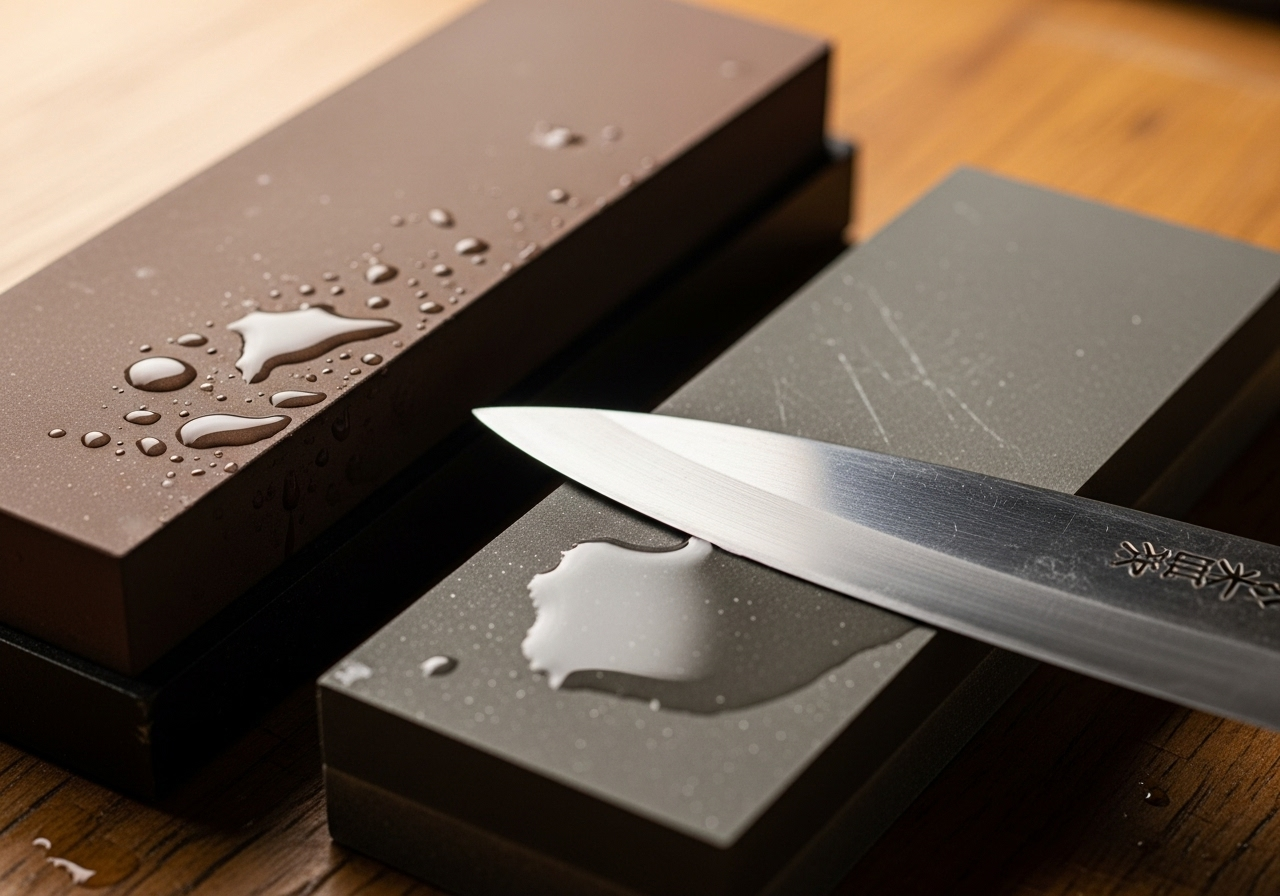KIREAJI
White Steel #2 (Honyaki-Mizuyaki) Yanagiba 330mm-Mirror Polished(one side)
White Steel #2 (Honyaki-Mizuyaki) Yanagiba 330mm-Mirror Polished(one side)
Out of stock
This Japanese knife is a rare, one-time offer. Once sold out, it will not be available again.
Shipping is free to the United States and Canada.
Couldn't load pickup availability
<Type>
Yanagiba
- Single-edged: right-handed
- Mirror Polished: one side
<Material>
- Blade : White Steel #2
- Handle:Ebony Silver-Wrapped Handle
<Size & Weight>
- Handle to tip length: 335㎜
- Blade height: 36㎜
- Thickness: 4.3㎜
- Weight: 299g
<Brand name>
Shiroyama (made in Sakai, Osaka)
Shipping & Returns
Shipping & Returns
Shipping is free to the United States and Canada.
After receiving an order from the customer, the craftsmen in Sakai City attach a handle to the Japanese knife and, if requested, perform Honbazuke as well. Therefore, it takes approximately 2 to 4 weeks to deliver the product.
Please refer to our return policy.





Traditional craftsmen working on this product

KIREAJI's Three Promises to You
-

1. Forged in the Legacy of Sakai
From Sakai City—Japan’s renowned birthplace of professional kitchen knives—each blade is crafted by master artisans with over six centuries of tradition. Perfectly balanced, enduringly sharp, and exquisitely finished, every cut carries the soul of true craftsmanship.
-

2. Thoughtful Care for Everyday Use
Every knife includes a hand-fitted magnolia saya for safe storage. Upon request, we offer a complimentary Honbazuke final hand sharpening—giving you a precise, ready-to-use edge from day one.
-

3. A Partnership for a Lifetime
A KIREAJI knife is more than a tool—it is a lifelong companion. With our bespoke paid aftercare services, we preserve its edge and beauty, ensuring it remains as precise and dependable as the day it first met your hand.

Why Many Product Photos Show Only the Blade
At KIREAJI, every knife is made to order in Sakai, Japan. Photos show the blade before the handle is attached, allowing artisans to perfect the balance and edge for your specific order. Your knife arrives fully finished — tailored just for you.

Global Delivery from Sakai
Across the world, discerning cooks seek authentic Japanese knives from Sakai — Japan’s legendary knife-making city with over 600 years of tradition.
At KIREAJI, we work alongside master artisans in Sakai to fulfill that desire, shipping genuine handcrafted knives directly from the workshop to kitchens worldwide.
Precautions
-
1. Honbazuke (Initial Sharpening)
If you wish to request Honbazuke, please select “Yes” when ordering. This service is provided free of charge.
Honbazuke is a practical initial sharpening performed for first use. As the knives are shipped internationally, the blade must be protected during transit. You may make final adjustments yourself to suit your personal preferences. -
2. Protective Coating on New Japanese Knives
New Japanese knives are coated with a transparent protective liquid vinyl coating to prevent rust during storage and international shipping.
Especially on mirror-polished blades, this coating may appear as a rainbow-like film depending on the lighting. This is not a defect in the steel or the finish.
How to remove the coating:
・Wash the blade gently with a sponge and mild dish soap, then rinse with lukewarm water.
・If difficult to remove, gently wipe while washing using tissue paper or a soft cloth.
・If residue remains, wiping with a cloth lightly moistened with alcohol (sanitizing ethanol) is effective.
・Never use metal scrubbers or abrasive cleaners, as they may damage the blade surface. -

3. Handcrafted Nature
Each knife is handcrafted by skilled artisans and is therefore unique.
Minor scratches or marks may be visible as a result of the handmade production process. These do not affect performance or functionality. We kindly ask for your understanding in advance. -
4. Natural Materials
As buffalo horn is a natural material, color variations may occur. The actual product may differ slightly from the photos shown.
-
5. Measurements
Please consider the listed weight and length as approximate values.
-
6. Inventory
We carefully manage our stock. However, in the rare event that an item becomes unavailable after ordering, we will notify you by email.
If you have any questions, please feel free to contact us. (Estimated reply time: within 10 hours)
Why Is Honyaki So Special?

Before Using a Knife
A knife is more than a tool—it’s the heart of cooking. Learning how to use it properly helps protect its quality, durability, and safety, so you can enjoy it for years while elevating every meal.

Daily Care of a Japanese Knife
With the right daily care, your knife will stay sharp and reliable for a long time. Here, we share the key points to keep it in peak condition and extend its lifespan.

After-Sales Service
At KIREAJI, we ensure your knife can be cherished for years with our dedicated after-sales service, provided by the Shiroyama Knife Workshop. For repairs or maintenance, please apply through the link below.
Why Every Great Chef Swears by a Good Knife
-
A great knife is more than a kitchen tool—it’s the secret to unlocking your full potential as a cook. From preserving the true flavor of your ingredients to making every cut effortless, the right knife transforms not only your dishes but also the way you feel in the kitchen. In this video, discover why chefs around the world swear by high-quality knives—and how choosing the right one can elevate your cooking to a whole new level.
-









